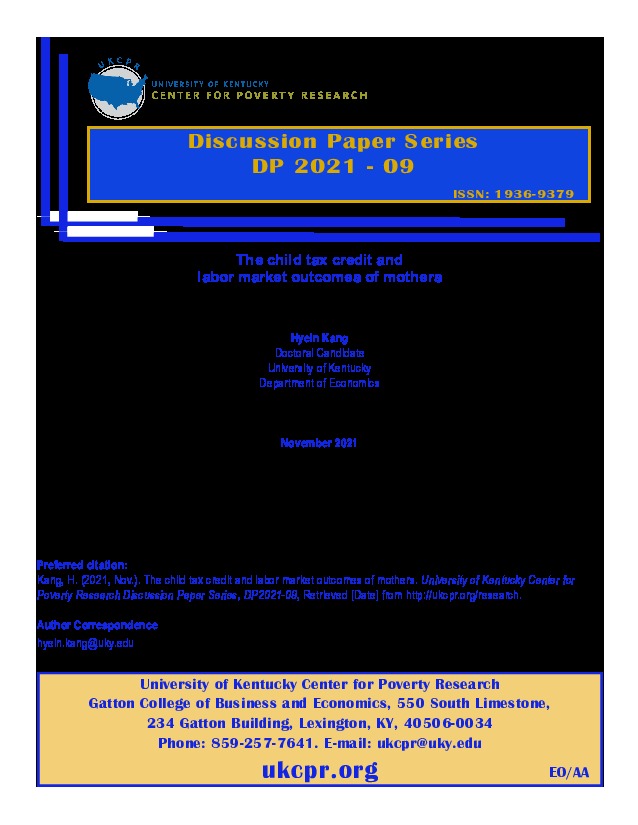This paper examines the effect of the Child Tax Credit (CTC) on the labor supply of single and married mothers using the numerous policy reforms in the credit generosity and eligibility criteria since its inception in 1997. I use variation in the simulated benefits for a nationally representative sample to estimate the labor supply response at the extensive and intensive margins. Using 25 years of data from the Current Population Survey my results suggest that an increase of $1,000 in the average CTC benefit leads to a 1.7 percentage point increase in employment of single mothers and a 35-hour increase in annual work. I find a greater effect when I restrict the sample to single mothers with high school or less education. For married mothers, I find that an additional $1,000 in the average CTC benefit is associated with a 28-hour increase in annual work. The results are robust to an alternative identification strategy using only variation in the maximum credit across time.
Research
PovertyPDF Thumbnail
